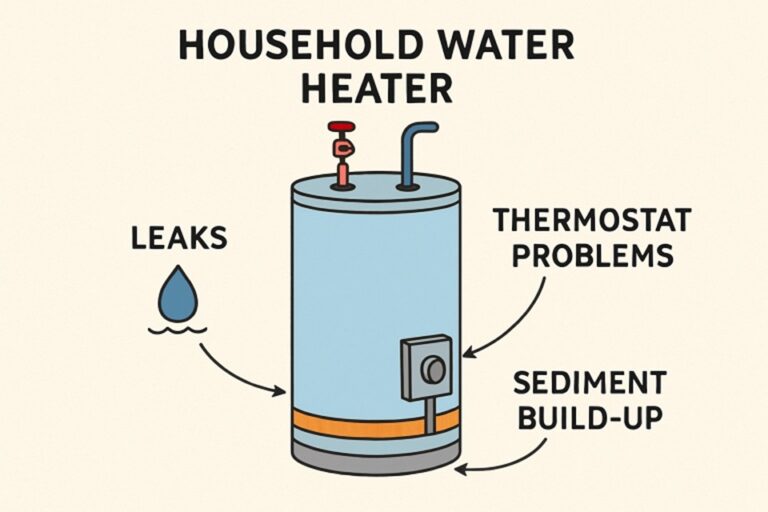Key Takeaways:
- Regular maintenance extends the lifespan and efficiency of your water heater.
- Promptly resolving minor issues prevents larger system failures.
- Annual professional inspections are recommended for long-term reliability.
For most households, a reliable water heater is an everyday necessity that ensures comfort for bathing, cleaning, and more. Yet, water heaters are often overlooked until they malfunction—resulting in cold showers or unexpected water damage. Preventing problems before they start is key to a longer-lasting unit and fewer headaches. Homeowners can often avoid inconvenient breakdowns and costly repairs with just a bit of proactive care. To learn about professional assistance, check out water heater repair for expert solutions if you notice persistent issues.
Ignoring minor water heater issues can cause damage, so early detection and maintenance help ensure safety and convenience. Regular inspections and habits can prevent problems, from temperature fluctuations to leaks, avoid cold showers, and extend appliance life.
Common Water Heater Issues
The typical issues that arise with home water heaters include several key problems. Inconsistent water temperature may occur due to a malfunctioning thermostat or sediment accumulation affecting the heating elements. Leaks can arise from corrosion, improper repairs, loose fittings, or overly high tank pressure, posing risks of significant property damage if not addressed. Discolored or smelly water, often rusty or foul, suggests internal corrosion or bacterial activity, particularly in tanks that have not been used for extended periods. Additionally, unusual noises such as popping or rumbling often indicate sediment or mineral buildup, which could reduce efficiency and potentially damage the unit over time.
Preventive Maintenance Tips
Staying proactive with water heater maintenance helps prevent common problems and extends the unit’s lifespan. Key steps include flushing the tank annually to remove sediment, checking for leaks or corrosion, replacing the anode rod every few years to protect against internal rust, and testing the temperature and pressure relief valve to ensure safety. These simple practices can improve performance, reduce repair costs, and keep your system running reliably. Working with an experienced remodel contractor can ensure the job is handled correctly and efficiently for larger upgrades or when considering plumbing-related improvements as part of a home project.
When To Seek Professional Help
Specific plumbing issues, such as persistent leaks, stubborn water discoloration, and continuous unusual noises, often necessitate professional assessment. Persistent leaks may indicate internal tank failure requiring replacement, while water discoloration suggests severe corrosion. Unusual noises could result from sediment buildup or damaged heating elements. In such cases, a licensed plumber can decide if repairs or a new installation is the most prudent and cost-effective solution.
Conclusion
Preventive care for your water heater is a smart investment that pays off in cost savings, comfort, and peace of mind. By routinely inspecting, flushing, and replacing wearable parts, homeowners not only extend the life of their system but also reduce the risk of emergencies. Don’t wait until you’re out of hot water—stay proactive for a reliable, efficient, and long-lasting water heater.










